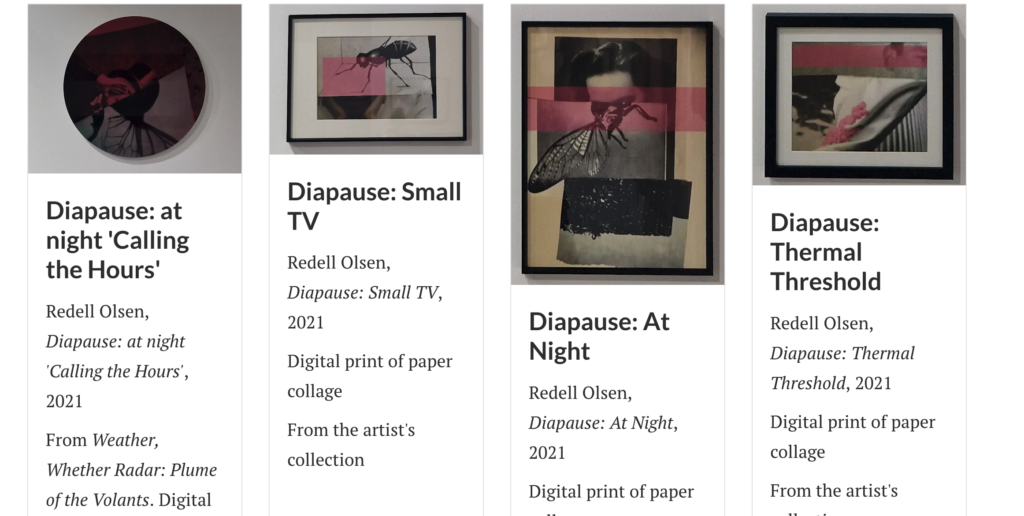Showing new work at Senate House Library – Tuesday 11 November

Rough/ruff to Capture Sky. Redell Olsen (2025)

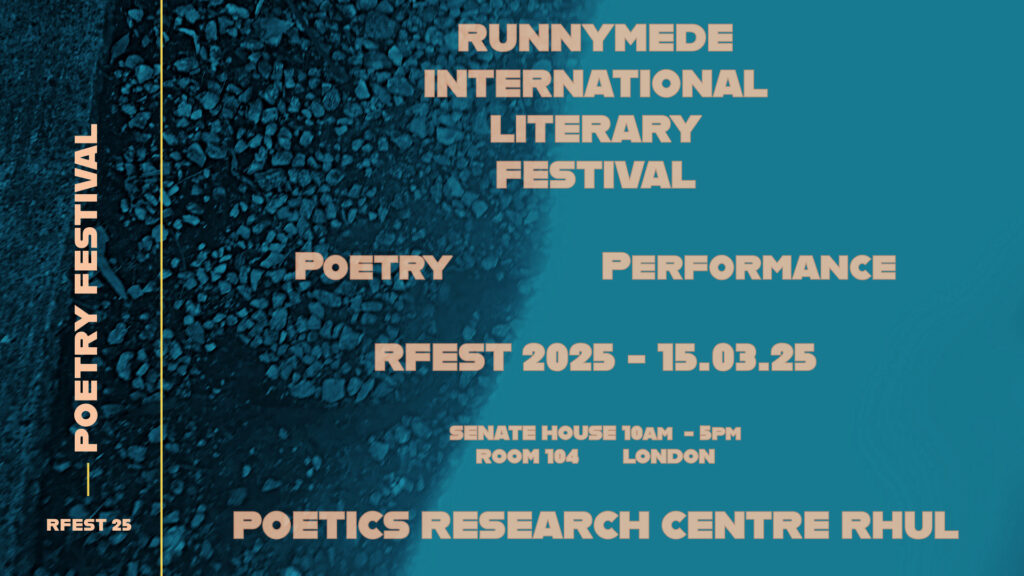
https://ies.sas.ac.uk/events/walking-book-medieval-object-urban-flaneuse-runaway-disgust
This session focuses on the properties of the handmade object and foregrounds the necessity of craft and embodied practice in a digital era in which disgust and pleasure are often encountered by proxy or at one remove from actual events or situations.
Redell Olsen will discuss recent bookworks devised in response to the form of the medieval girdle book and their material poetics. She will trace a sometimes fictitious and highly speculative trajectory for this book form, from medieval accessory, through 19th and 20th century urban poetics, to a new enframing of a contemporary girdle book as necessary super-real performance object, which counters and marks the end of our fossil fuel era. https://redellolsen.co.uk/fossil-oil-a-book-of-hours/(Opens in new window)
Professor Redell Olsen is a writer and visual artist who also makes work in hybrid media, bookworks and performance. She co-directs the Poetics Research Centre at Royal Holloway, University of London and runs the influential MA CW in Poetic Practice.
This is a practice-based seminar and will feature a walk with headphones around Senate House.
Seminar Series Out of Practice Seminar (Oops) Address Room 243, Second Floor, Senate House, Malet Street, London WC1E 7HU
Speakers Redell Olsen (Royal Holloway, University of London )
Event dates 18 February 2025, 5:00PM – 7:00PM
Add to calendar Contact IESEvents@sas.ac.uk
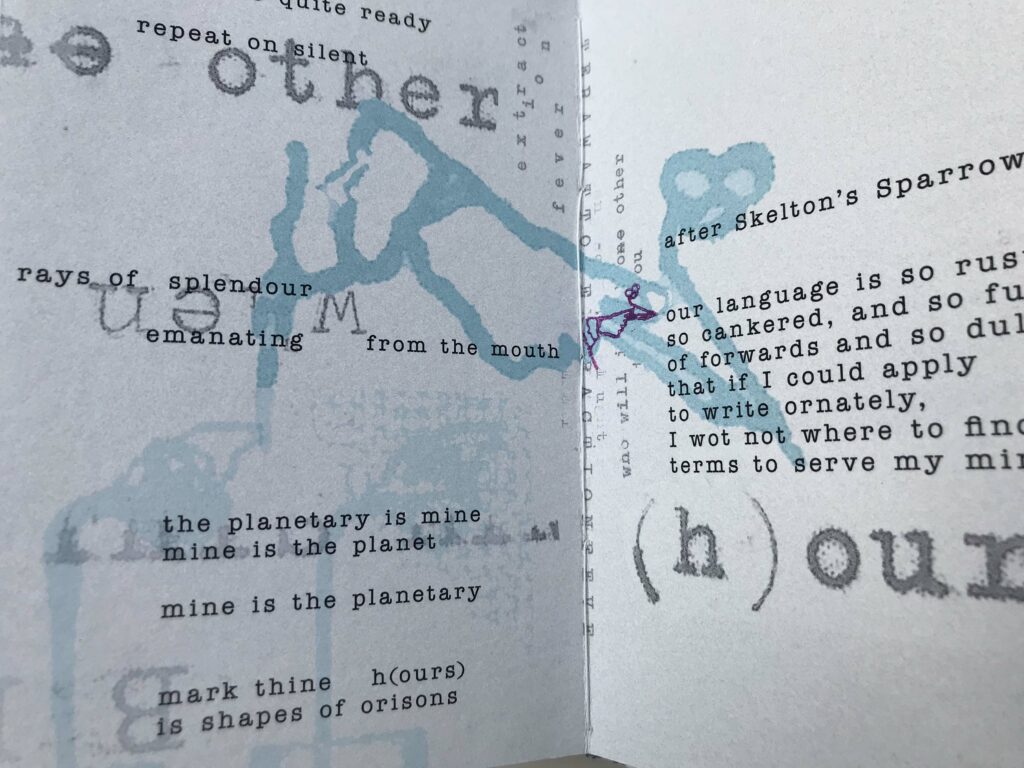
Produced as part of the Intervals Project – AMBruno, London 2024.
The poet and artist, Redell Olsen, known for her hybrid poetic texts, films and performances launches a new bookwork: Fossil Oil: a book of hours to be shown at TATE Britain as part of AM Bruno’s Intervals project on 18th October 2024 and at the Small Publisher’s Fair in Conway Hall, London on the 25th and 26th of October.
The bookwork is produced as a sewn handmade edition of twelve. It is bound with covered boards on stubs and has a semi-rigid case binding and fabric outer covering. It includes a number of handprinted elements and foldout sections produced with a variety of hand and digital processes. The form and structure are arranged with reference to Medieval Books of Hours and the book is divided into seven intervals with a different poetic text. Olsen’s intertextual poem offers a series of secular meditations for our fossil fuel era that are interrupted and playfully disrupted by traces of other books, bodies, readers and related found materials.
The binding references Medieval Girdle books which were “small portable books worn by medieval European monks, clergyman and aristocratic nobles as a popular accessory to medieval attire”. Girdle books have the common feature of a “long tapered tail with a large knot on the end” which could be tucked into the belt (Mesmer, 2015 and Smith, 2017). Olsen has carried out extensive research into the contexts of use and production surrounding this medieval wearable art form and this has informed the approach to her contemporary bookwork which is not bound in leather, but in PVC leatherette, itself a by-product of the petroleum industry. The pattern of this outer manmade material is used as the printed and conceptual starting point for many of the visual forms that emerge across the bookwork and its handmade endpapers.
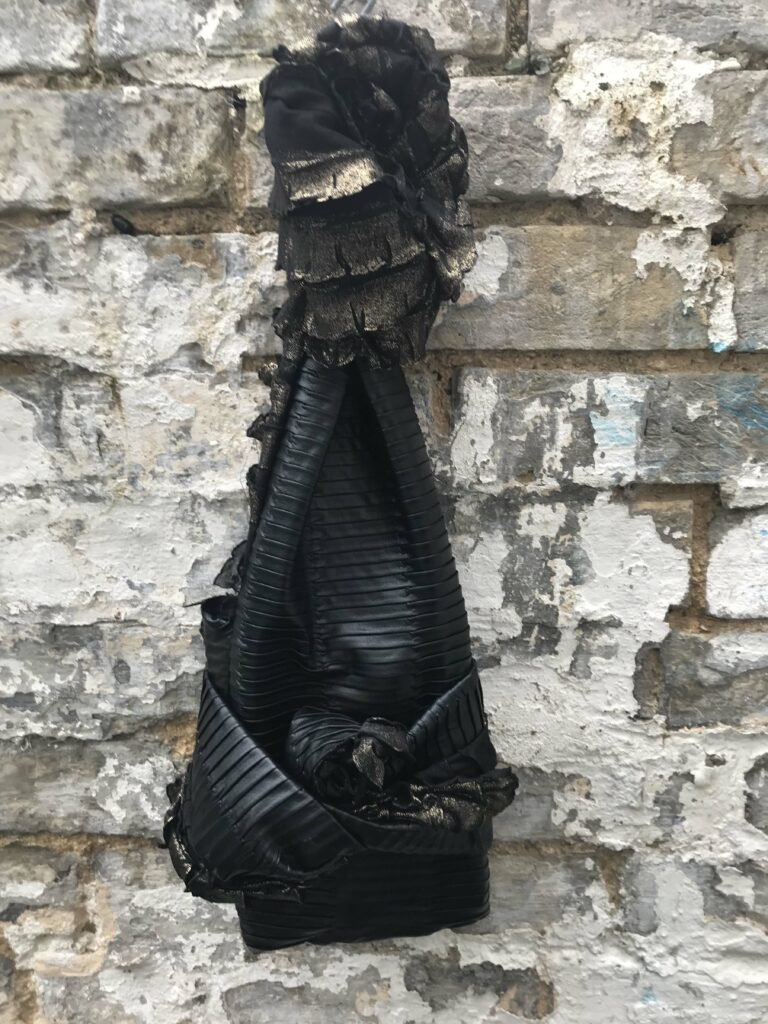
Link for more details of book here
Some Notes on the Individual Sections of Fossil Oil: a book of hours:
Matins and Lauds is a fold out section digitally printed on one side and hand printed on the other. It draws on the text of the 13th Century poem the Ancrene Wisse – a rule book by an unknown scribe that was commissioned by a household of female anchoresses. The poem also quotes from John Skelton’s 15th Century satirical poem on the apparent difficulties of finding a contemporary poetic language for metaphysical concerns. In Olsen’s text the material and conceptual question is how to find a poetics that can represent the historical complexities and complicities of fossil fuels as we confront the terror (terawats) of the ‘KeroSCENE’, as the exploitation of our natural resources is revealed as a finite relationship that is approaching an end.
Prime responds to illuminations found in the Hours of Mary of Burgundy which, like many Books of Hours, features a reader at a window who is also the patroness of the book. The reader is represented inside the book she is reading and perhaps writing. In the medieval illumination the view through the window establishes an apparently external landscape that also represents her interior devotion. Olsen’s text includes a series of visual poems that include printed structures, made from the pressing of the outer material of the bookwork into forms that suggest tyre tracks, the lines on the page and the stratification of rock formations. There are also intimations of windows or portals to other landscapes and spaces of conceptuality to be accessed through considerations of the materiality of the bookwork.
Terce draws on details from a series of 15C Welsh prose poems that set out a sequence of events to be noted in the run up to the end of the world alongside contemporary observations and signs of ecological ruin. It features a domesday calendar or medieval almanac as its central visual device.
Sext is a site responsive poem figured in relation to repeated visits during lunchbreaks to Lincoln’s Inn Fields in Holborn, London. The text references histories of the area alongside recorded observations and partial fragments of narrative incident. The central image of this interval or section is an image of a fuddling cup, parts of which were dug up in the vicinity in an archaeological dig. A fuddling cup is made up of “three or more jars or jugs with bodies of interconnection” and Olsen’s text seeks to establish relational links between the different elements under a slogan drawn from a 1970s Shell catalogue, ‘Oil is for Everybody’.
None tracks the histories of oil production on the Thames and the text is interspersed with a number of images that include refigured and collaged details from oil industry publications for schools.
Vespers brings to the foreground an important trope of the bookwork which is the reliance on the visual imagery of the manicule. A manicule is the medieval practice of drawing a hand in the margin of a book, alongside an important passage to be noted by the reader and subsequent readers of the work. Olsen’s bookwork visually quotes manicules by John Dee and Ben Johnson as well as at least two other anonymous hands throughout the book.
Compline (written as compiline in reference to the varied spellings of the medieval source materials) is another fold out section with digitally printed, typewritten and hand printed elements. The images and details relate to many of the previously established contexts from the other sections. The fragmentary and unstable poetic language echoes and refracts its source texts. The final section proposes a call for attention to various intervals including those of deep time as read in rock formations as well as the histories of oil production and our contemporary reliance on fossil fuels. The female figures of the Ancrene Wisse are refigured as potential activists in a contemporary era of environmental disaster and climate crisis. The reader is invited to join them there.
Redell Olsen is a writer and artist. She has published five collections of poetry and read and performed her work in the UK, France and the United States. In 2021 she was awarded DARE Art Prize for a collaboration with Opera North and The Tetley Museum in Leeds. Her 2018 film, Now Circa, 1918 was a finalist in the AHRC Best Research in Film Award. Redell Olsen teaches at Royal Holloway, University of London. She supervises academic and practice-based Phds and directs the influential Poetic Practice CW MA.
Established in 2008, the artists’ coalition AMBruno facilitates the development and dissemination of the book as primary medium in art practice. The initiative was originated, and is overseen by Sophie Loss. The makeup of the group changes with every new project. A unique feature of this initiative is that books are produced to a set theme for each annual project. The final works may be diverse in form and approach, but all have the thread of the originating topic running through.
AM Bruno – Intervals at TATE: https://www.tate.org.uk/whats-on/tate-britain/intervals-with-ambruno
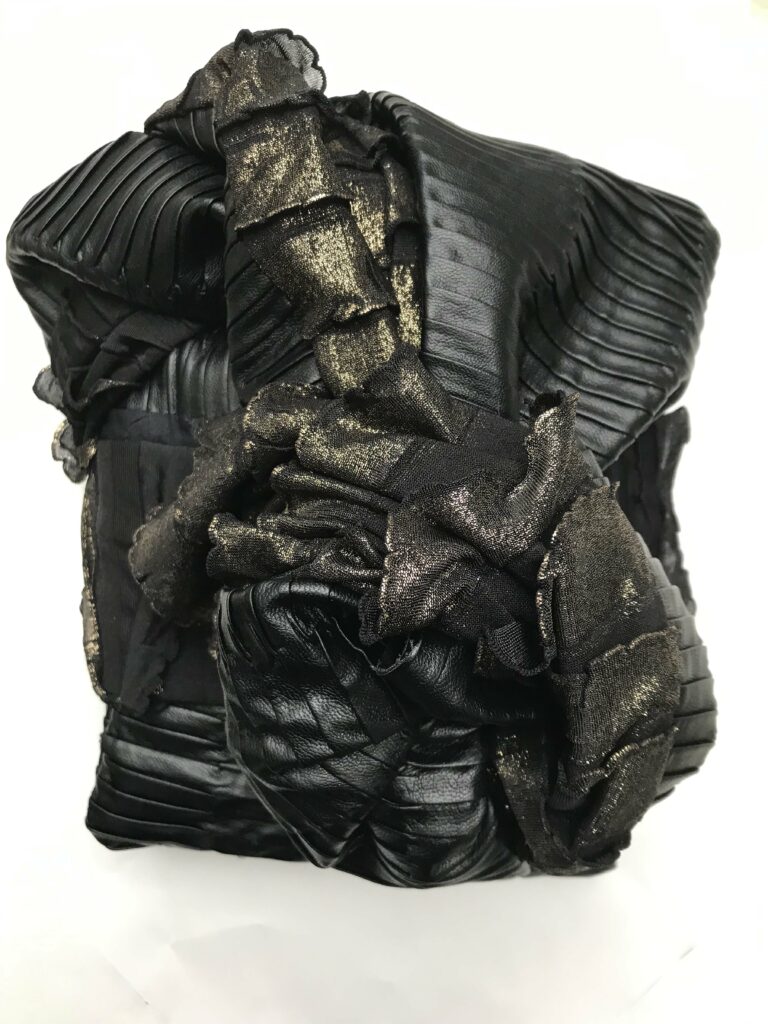
18 October 2024 at 13.30 – 17.30
AM Bruno: http://ambruno.co.uk
Small Publishers Fair https://smallpublishersfair.co.uk/get-the-most-out-of-your-visit-to-small-publishers-fair/
foundmaterials@me.com
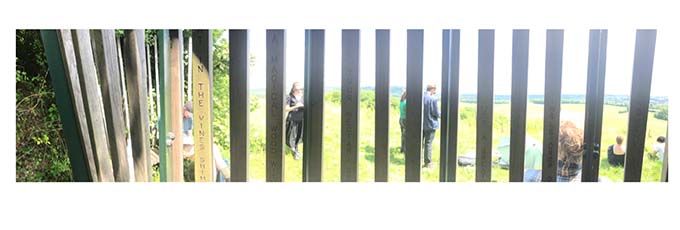
Summer 2024 workshops in collaboration with Surrey Hills Arts. Student placements and planned publications / exhibition in Autumn 2024. Writing and art in response to site, art and environment.
(view from Radius Sculpture by James Tunnard).
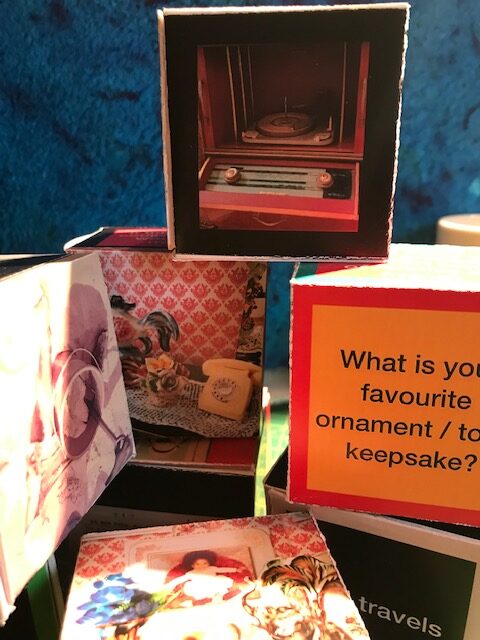
A creative workshop at BCA with Lewi Mondal. Participants were encouraged to write or draw in response to a series of cubes desgined for the workshop by me. The cubes used images from the current exhibition at BCA on living rooms by Tony Fairwearther. I hope to use the cubes in other contexts and workshops and to develop further projects with BCA and other museum collections and archives. The cubes feature prompts for making, drawing, writing, remembering and imagining connections between personal and public archives that were suggested through play with the cubes themselves…
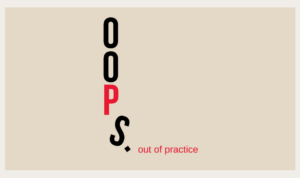
Out of Practice Seminar (Oops)
This talk considers the contexts and motivations of two recent works: a poem and performance. Each explores relationships to music, visual art and the noise of cultural and critical dissent. E.P. Thompson’s survey of the long standing European traditions of ‘Rough Music’ reveals the uncomfortable tensions between community-based rituals and the local enforcement of law. This talk will demonstrate how Thompson’s archival survey of folk traditions is highly generative for the formation of a contemporary poetics alive to its own fragility, even complicity with its apparent objects of subversion. Olsen’s recent performance, Frownlands, 1969 both celebrates and resists aspects of the commonality and energy of 60’s counterculture. At Bury Art Gallery she presented a feminist inflected performance-text, a nominy delivered karaoke style in a non-site plywood replica of the original scene of production: the Californian Woodland Hills house where the infamous album, Trout Mask Replica was recorded. The talk will explore the overlaps and gaps between imagined and empirical audiences. What happens when the reality of performance and poetic language come up against wider conflicts of interest and power relations at large in the speculative imaginaries and curatorial fantasies of public engagement and participation?
Bedford Room, G37, Ground Floor, Senate House, Malet Street, London WC1E 7HU
Speakers Redell Olsen (Royal Holloway, University of London), Christopher Ohge (Institute of English Studies, SAS) 19 March 2024, 5:00PM – 7:00PM
Contact IESEvents@sas.ac.uk
https://ies.sas.ac.uk/events/shifting-audiences-reconfiguring-pasts
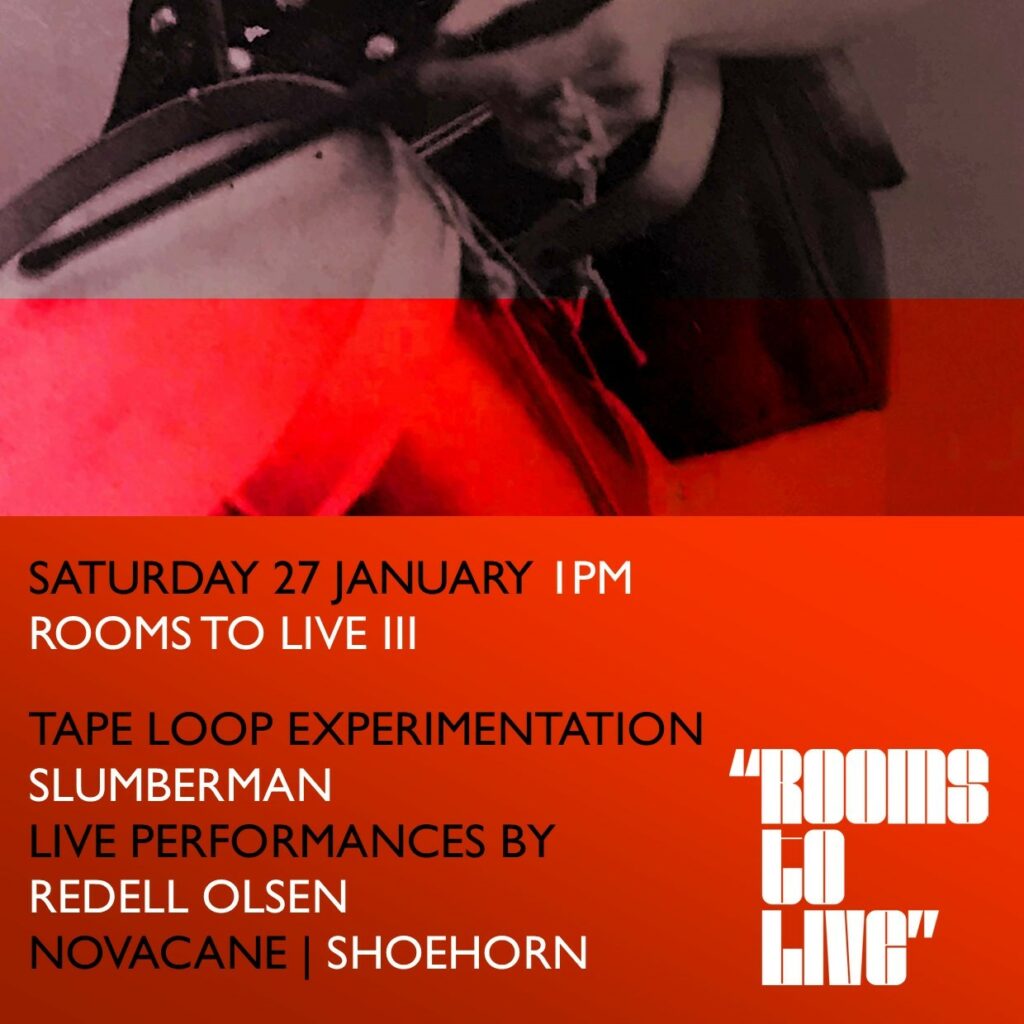
New performance work Saturday January 27th at Bury Museum and Art Gallery as part of an exhibition by Derek Tyman and Andy Webster.
Art-writing performance that builds on instrumental outakes from Beefheart’s, Trout Mask Replica. Olsen plays through and counters the often punishing methods of production endured by the original band members with an homage that is also a rewriting of the master’s voice. She offers a provocative chorus of speculative fragmentary imaginings from a variety of sources and eras to recast the legendary narratives of the making of the original album alongside interruptions drawn from the erased history of female drummers, nostalgic imaginings for futures that never were and cacophonies of protest relevant for our present day Frownlands.
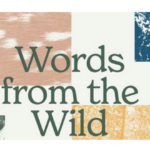
This exhibition is curated by my Phd students: Briony Hughes, Caroline Harris and Gareth Hughes in collaboration with the Culture Team at Royal Holloway. It features work from artists and writers working with text and image in relation to ecological and environmental issues. It reflects the cultural environment and work of the practice-based students that I teach at MA and Phd level on the Poetic Practice pathway and some of the work by contemporaries that we admire, including: Susan Johanknecht and Kate Meynell and JR Carpenter. Really delighted to be showing some of my work from the Plume of the Volants series in this company.
This exhibition is open from 17 January 2024 – 24 March 2024 in the Davison Building Exhibition Space at Royal Holloway.
Work in the exhibition
